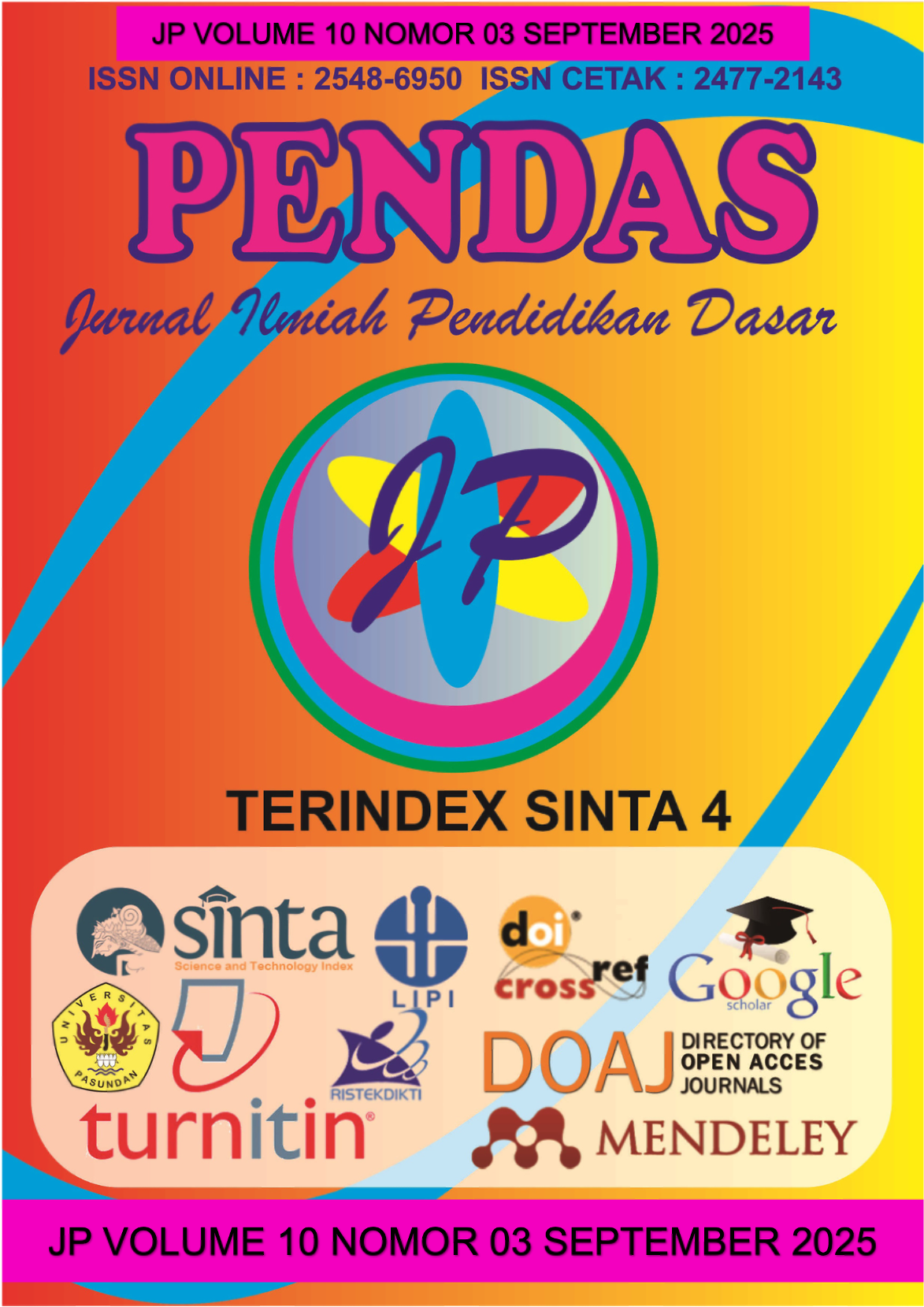STRATEGI GURU MENGATASI KESULITAN BELAJAR SISWA DI SMPN NO.18 KECAMATAN LAU, MAROS
DOI:
https://doi.org/10.23969/jp.v10i03.31504Keywords:
Teacher Strategy, Learning Difficulties, Islamic EducationAbstract
This qualitative study investigated the strategies implemented by Islamic Religious
Education teachers in overcoming learning difficulties of class VIII Sipakabaji
students at SMP Negeri 18 Lau Maros, Maros Regency. The results of the study
showed several factors causing students' learning difficulties, including lack of
interest and motivation to learn, low concentration in class, lack of discipline in
learning, and lack of parental support for children's learning achievements. This
condition is not experienced by all students equally, but it is a challenge for teachers
in creating effective learning. Cultivating students' interest in reading is also an
obstacle, considering the strong influence of social media among teenagers. The
strategies implemented by teachers to overcome students' learning difficulties
include individual approaches, providing motivation, and tutoring. Teachers try to
give special attention to each student according to their individual needs and
learning difficulties. Motivation is given consistently to increase students'
enthusiasm for learning and self-confidence. Tutoring is carried out both inside and
outside class hours to help students understand difficult subject matter. In addition,
teachers also emphasize mastery of learning materials in accordance with the
syllabus and Learning Implementation Plan (RPP). The delivery of material is
carried out systematically and interestingly so that students can more easily
understand and remember the material. Teachers also try to create a conducive and
enjoyable learning atmosphere to increase student participation and enthusiasm in
participating in learning.
Downloads
References
Manajemen Pendidikan Islam
2(1):236–44. doi:
10.58561/mindset.v2i1.74.
Munirah. 2020. Menjadi Guru Beretika
Dan Profesional. Bandung: Insan
Cendekia Mandiri.
Nawwir, Yush, and Ariesthina Laelah.
2024. “Peranan Orangtua Dalam
Meningkatkan Kecerdasan
Spiritual Anak.” Journal of Gurutta
Education 3(1):24–30. doi:
https://doi.org/10.33096/jge.v3i1.
1589.
Nusroh, Siti, and Eva Luthfi. 2020.
“Analisis Kesulitan Belajar
Pendidikan Agama Islam (PAI)
Serta Cara Mengatasinya.”
BELAJEA: Jurnal Pendidikan
Islam 5(1):71–92. doi:
https://doi.org/10.29240/belajea.v
5i1.1145.
Prayogi, Arditya. 2025. “Gaya Belajar
Siswa Bimbingan Belajar Luar
Sekolah: Studi Kasus Di Kota
Bandung.” Jurnal Bersama Ilmu
Pendidikan (DIDIK) 1(1):1–7. doi:
https://doi.org/10.55123/didik.v1i
1.3.
Rahanyamtel, Amna, and Bambang
Sunatar. 2024. “Peran Guru
Tahfidz Dan Orang Tua Dalam
Meningkatkan Motivasi Muraja’ah
Hafalan Al-Qur’an Pada Siswa
Kelas IX SMP Islam Terpadu (IT)
As-Salam Fakfak.” Transformasi:
Jurnal Kepemimpinan &
Pendidikan Islam 8(1):85–100.
doi:
https://doi.org/10.47945/transfor
masi.v8i1.1639.
Rosyadi, Royan. 2024. “Peran Orang
Tua Dalam Meningkatkan
Motivasi Belajar Siswa.” An Najah
(Jurnal Pendidikan Islam Dan
Sosial Keagamaan) 3(5):377–86.
Suri, Hermia Apta, Dedi Setiawan, and
Adi Wijaya. 2024. “Strategi Guru
Pendidikan Agama Islam Dalam
Mengatasi Kesulitan Belajar
Siswa Melalui Pembelajaran
Kontekstual.” Berkala Ilmiah
Pendidikan 4(1):153–63. doi:
https://doi.org/10.51214/bip.v4i1.
914.
Zain, M. 2017. “Pengembangan
Strategi Pembelajaran Dan
Pemilihan Bahan Ajar.” Jurnal
Inspiratif Pendidikan 6(1):172–
78.
Downloads
Published
Issue
Section
License
Copyright (c) 2025 Pendas : Jurnal Ilmiah Pendidikan Dasar

This work is licensed under a Creative Commons Attribution 4.0 International License.














































